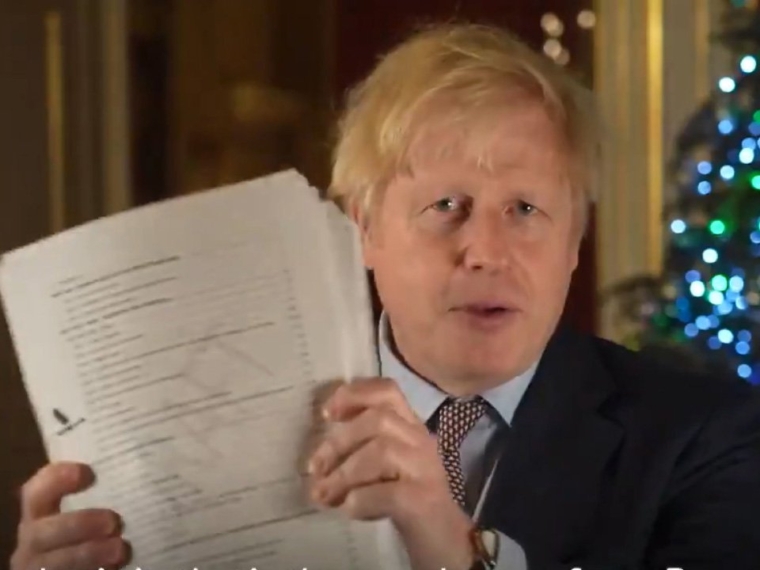Boris Johnson has hailed the Brexit agreement his present to the country, but the new deal looks like it will have significant and negative impacts to the UK’s security.
The UK and the EU will continue to co-operate on security and policing issues under the deal agreed with Brussels, but Britain will no longer enjoy the same level of “facilities” as before.
The UK will automatically forfeit its membership of Europol, Eurojust, the European Arrest Warrant and real-time sensitive data-sharing agreements such as the Schengen Information System (SIS2) when the UK exits the transition period on 1 January.
This means it will no longer have access to EU databases which includes criminal record information, DNA, fingerprint and vehicle registration data.
It comes after a trade deal was finally struck on Christmas Eve after nine months of often bitter negotiations.
UK loses access to EU security databases

Asked about security arrangements and co-operation with the EU going forward, the Prime Minister was unsurprisingly optimistic.
“On security and police co-operation I’m absolutely confident this is a deal that protects our police co-operation, protects our ability to catch criminals and to share intelligence across the European continent in the way that we have done for many years,” he said.
“I don’t think people should have fears on that score, or indeed on any score.”
The potential impact
The UK will undoubtedly struggle however, especially in the days after SIS2 access is switched off before a replacement is found. The EU-wide database issues front-line police officers alerts about wanted or missing people, cars or other items.
The National Police Chiefs’ Council (NPCC) has previously said that SIS2 is “essential for mainstream policing”, while the National Crime Agency (NCA) previously expressed concerns over losing access, as it allows it to issue discreet alerts in relation to counter-terrorism suspects.
UK police access the SIS2 database around half a billion times every year, BBC News reports.
In addition to SIS2, the UK co-operates with European partners on hundreds of cross-border criminal and terrorism investigations through Europol, the EU’s policing agency. The NCA said will have to re-organise hundreds of these operations with new agreements with each country it currently works with inside Europol.
There is hope the UK could strike up an arrangement similar to the US, which has an “associate” relationship with Europol, in which it cannot use all its investigatory powers, and has no power to influence the organisation. This is yet to be seen however.
Currently the UK can send a “European Investigation Order” to countries within the EU – a legally-binding request to gather evidence by a specific deadline. On 1 January, this will be lost and must in future send a “Letter Rogatory” – an internationally-recognised diplomatic request for assistance. These have historically been slower, and nations have been known to ignore them or take too long to respond.
Under the European Arrest Warrant, the UK has been able to hand over more than 11,000 individuals accused or convicted of a criminal offence within days or weeks since 2004, The Telegraph reported.
‘Co-operation’ with the EU on security
Co-operation with the EU has been assured, but what this will look like is uncertain. According to the European Commission, the text of the deal “recognises the need for strong cooperation between national police and judicial authorities”.
“Our agreement concerns the security of our citizens, as we’ve always said that our security, that of our citizens, is not up for grabs and combating terrorism and crime requires close co-operation between the European Union and this great country, the United Kingdom,” EU’s chief negotiator Michel Barnier said.
The agreement did include “ambitious” arrangements for the “timely, effective, efficient and reciprocal exchanges” of air passenger details and criminal record information, as well as DNA, fingerprint and vehicle registration data.
In theory this could mitigate some of the losses to EU databases, but this is dependent on how the new arrangement plays out. One thing is clear – on paper, the new security deal marks significant losses to UK security.

